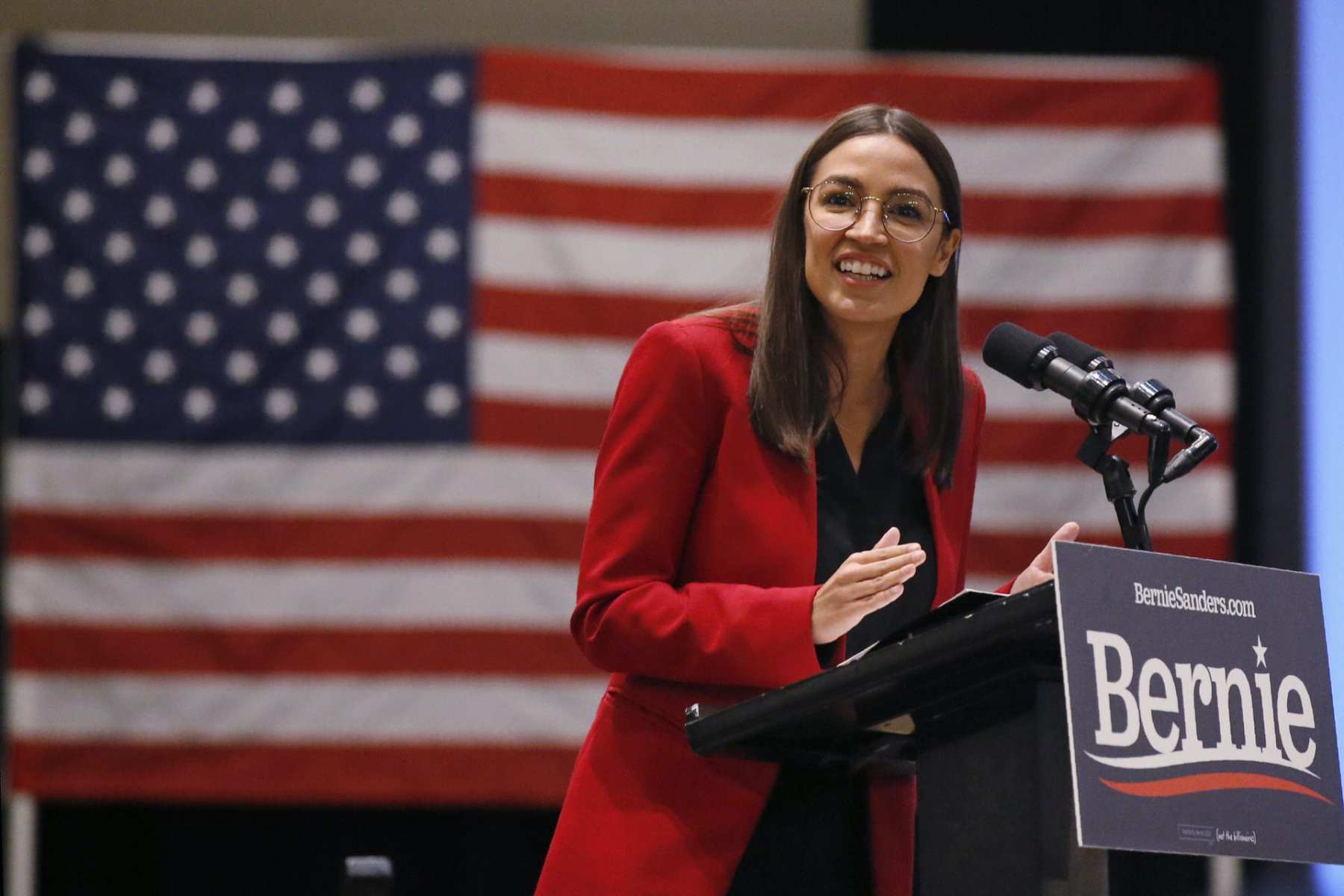Alexandria Ocasio-Cortez had 90 seconds on Tuesday night. She did her best to make them count.
Although she’s considered one of the party’s rising stars — drawing national headlines not even a month ago for her speech addressing sexist slurs used against her by Florida Rep. Ted Yoho — Ocasio-Cortez’s speaking time at the Democratic National Convention was limited to seconding the nomination of Vermont Sen. Bernie Sanders as the Democratic candidate for president. In that time, Ocasio-Cortez, who at 30 is the youngest current member of Congress and its youngest woman ever elected, outlined a progressive vision of America that could illustrate what the future of that party looks like.
Switching between Spanish and English, Ocasio-Cortez thanked the Americans who she said had supported “a mass people’s movement working to establish 21st century social, economic and human rights — including guaranteed health care, higher education, living wages and labor rights for all people in the United States.”
The speech represented a break from what the convention has thus far offered: an unequivocal coronation of former Vice President Joe Biden, who is scheduled to accept his party’s nomination later this week.
Progressives, including Sanders, have rallied behind Biden. But both Sanders’ speech Monday night and Ocasio-Cortez’s on Tuesday made clear that the party’s left wing will continue to push the former vice president to adopt more progressive policies.
And with Sanders now coming off of two presidential campaigns, that left-wing mantle is already starting to move to the New York representative. On Sunday, prominent Sanders surrogate and hip-hop star Cardi B endorsed Ocasio-Cortez for president — once, that is, she is old enough.
In her speech, Ocasio-Cortez spoke in expansive terms of change.
The movement she champions, she said, is one to combat “unsustainable brutality of an economy that rewards explosive inequalities of wealth” but also one that can “recognize and repair the wounds of racial injustice, colonization, misogyny and homophobia — and to propose and build reimagined systems of immigration and foreign policy that turn away from the violence and xenophobia of our past.”
That’s a broader vision than what Sanders often articulated. On the campaign trail, Sanders focused primarily on economic inequality, describing issues like systemic racism as by-products of class dynamics.
But Ocasio-Cortez’s words — even spoken while nominating a 78-year-old White man, in a convention lineup featuring numerous former Democratic presidents — speak to a future party. It’s one that is further left on issues like income inequality and health care. It’s also increasingly female, and one that is more aware of the increasingly Latinx electorate.
It was that vision she articulated in closing her speech.
“In a time when millions of people in the United States are looking for deep, systemic solutions to our crises of mass evictions, unemployment and lack of health care, in el espiritu del pueblo, and out of love for all people,” she said, “I hereby second the nomination of Sen. Bernard Sanders.”






